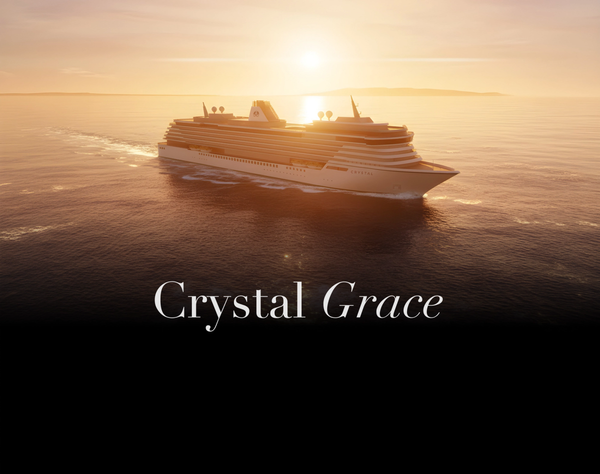MSC Cruises faces scrutiny over misleading green claims

The maritime industry, particularly the cruise segment, has witnessed increased scrutiny from environmental groups, particularly in relation to claims made by companies about their environmental impact and sustainability efforts. One of the notable instances of this scrutiny has involved MSC Cruises, which has recently faced criticism from Dutch advertising authorities for its environmental advertising claims surrounding liquefied natural gas (LNG) and its broader fuel transition strategy.
MSC Cruises Under Fire for LNG Claims
The Reclame Code Commissie, which governs advertising regulations in the Netherlands, partially upheld a complaint from three environmental organizations against MSC Cruises. These groups assert that certain statements made by MSC regarding its LNG-fueled ships and their transition towards achieving net zero emissions by 2050 were misleading.
Key Complaints Against MSC Cruises
The environmental groups, including Fossil Free Netherlands, issued a formal complaint, leading to the commission ruling that MSC's advertisements should no longer include claims about their LNG ships being a significant milestone. The commission argued that the cruise line must refrain from making broad declarations about future plans that lack concrete metrics or substantial progress.
While certain claims against MSC Cruises were upheld, the commission rejected arguments stipulating that cruising as a leisure activity is inherently environmentally harmful. The groups had called for a complete cessation of cruise advertising but this broader demand was not supported in their favor.
Broader Context: Environmental Concerns in the Cruising Industry
The ruling against MSC Cruises is part of a larger trend where environmental entities are actively working to challenge misleading marketing claims in the maritime and cruising sectors. These groups argue that companies often engage in "greenwashing," misleading consumers about their environmental efforts.
Background of the Complaint
The allegations against MSC stem from the promotion of their LNG-fueled vessels, which the companies claim use one of the cleanest fuels available in the marine sector. However, the complainants highlighted that LNG's production often involves fracking, which has significant methane emissions associated with it, undermining its purported environmental benefits.
MSC's Current Fleet and Future Plans
At present, MSC Cruises operates two ships powered by LNG, while its broader fleet still largely relies on traditional fuel oil. Critics assert that MSC's operational strategy does not adequately address the environmental challenges posed by the shipping industry as a whole.
Innovation and Investment in Sustainability
Despite the criticisms, MSC Cruises has been proactive in investing in new technologies aimed at reducing its carbon footprint. The cruise line has been among the pioneers in adopting LNG as a maritime fuel, introducing ships like the MSC World Europa and MSC Euribia.
In total, MSC Cruises plans to construct three additional LNG-fueled vessels, signifying a significant investment in cleaner technologies for the future of its fleet. The company is also exploring alternative fuels, including biofuels and synthetic options, as part of its long-term strategy for sustainability.
Implications of the Ruling for MSC and the Shipping Industry
The recent ruling could have lasting implications not just for MSC Cruises but for the cruising industry at large. It signals that regulatory bodies are taking a firm stance on the accuracy of environmental claims made by maritime companies.
Potential for Industry-Wide Scrutiny
As environmental concerns continue to grow, the cruise industry may face increased regulatory oversight and consumer skepticism. This trend highlights the necessity for genuine and verifiable sustainability efforts by all maritime companies, greater transparency in advertising, and adherence to established environmental standards.
Political and Public Pressure for Reform
Internationally, there has been substantial pressure from NGOs to impose stricter regulations on the cruise industry. Activist groups are pushing for measures such as increased taxation on cruise operations to offset their environmental impact while facilitating the transition to zero-carbon fuel solutions.
The Role of Activism in Maritime Change
Activist organizations, including Extinction Rebellion, have taken direct action, such as blocking cruise ship access to prominent ports like Amsterdam. Such movements aim to raise awareness and force companies to consider the ethical implications of their operational practices.
Conclusion
MSC Cruises' recent encounter with the Dutch advertising authority highlights the ongoing tension between environmental responsibility and corporate marketing strategies in the maritime industry. As it stands, the future of cruising will likely involve maximized transparency, genuine sustainability practices, and concerted efforts to truly minimize the environmental impact of this expansive sector.
FAQs
1. What prompted the complaint against MSC Cruises?
The complaint was initiated by environmental groups who believed MSC's advertising claims about their LNG usage and sustainability efforts were misleading.
2. What are LNG-fueled cruise ships?
LNG-fueled cruise ships run on liquefied natural gas, which is considered to have lower emissions than traditional marine fuels.
3. How does MSC Cruises plan to improve its environmental performance?
MSC Cruises is investing in more LNG vessels and is exploring biofuels and synthetic alternatives as part of future operational strategies.
4. What is "greenwashing" in the context of the cruise industry?
Greenwashing refers to the practice of companies making misleading claims about their environmental efforts to appear more sustainable than they actually are.
5. What broader measures are being called for in the cruise industry?
Activist groups are calling for a tax on the cruise industry to fund the transition to zero-carbon fuels and to ensure companies contribute fairly to environmental efforts.




